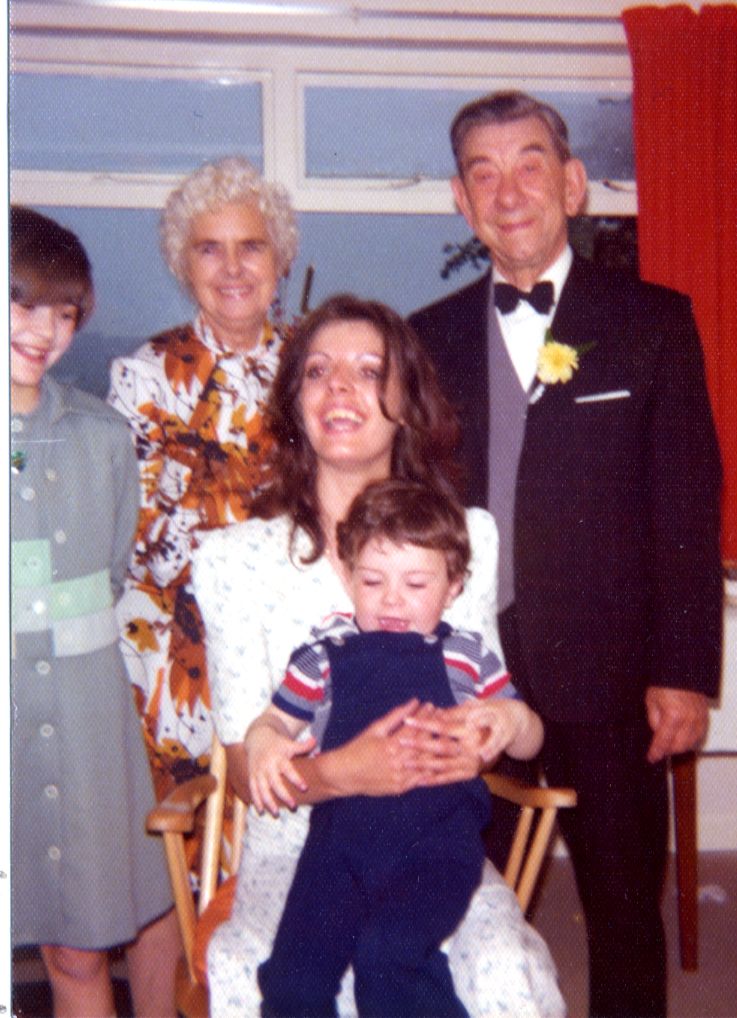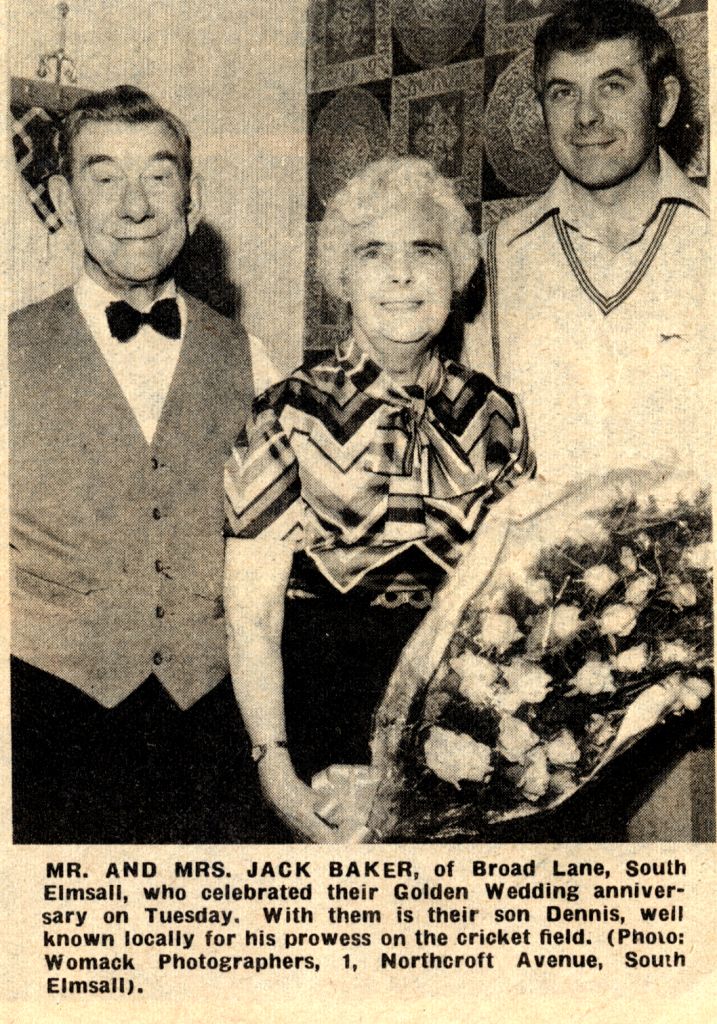John Henry Baker
Date of birth: unknown
Date of death: 1978
Area: South Elmsall
Regiment: 7th Hussars (WW1), Intelligence Corps (WW2)
Family information: Husband of Elsie May Baker
Rank: Private
Service number: 533435
War service
My father joined the army in approximately 1917 towards the end of WW1. He was in the 7th Queen’s Own Hussars. At that time I had not appeared on the scene! So information about my Dad is limited. However, I’m glad to relate from documents in my possession and a little imagination.
Firstly, my Dad in the 7th Hussars Cavalry was as unbelievable as travelling to the moon in 1917, yet I have evidence of this fact by way of two army certificates of education issued by the army council in India.
They read as follows: ‘Private J. H. Baker No. 533435 of the 7th Hussars attained a very fair standard in arithmetic, a very fair standard in composition; is very fairly versed in geography and possesses a very fair knowledge of modern English history.’ He also passed in map reading.
The 2nd certificate reads: ‘Arithmetic, reduction simply practice and proportion, vulgar and decimal fractions, averages, percentages and proportional parts, simply superficial and cubic measure, regimental accounts and simply essay writing.’
No wonder he wanted me to study! Dad was very small in stature, yet he could hold his corner against bigger army bullies he came up against.
At the start of World War one, the 7th Hussars were stationed at Bangalore, then Secunderabad and Dehli. In 1917, the frustrated regiment sailed to Basra to fight the Turks. They moved to Baghdad and saw action in March 1918, when they efficiently routed the enemy. They were also involved in several other brilliant attacks and were the occupying force until May 1919. After the war they had a short tour of India until 1923. Perhaps John Henry Baker was involved in some of these events.
At the outbreak of World War 2, he volunteered to join the Field Intelligence Corps in 3rd Field security, serving in Italy and Cairo despite being over-aged to join. Not much is known about his service except that he was often on prisoner escort duty and that he had a close encounter with a tarantula, which landed on his face, marking him for life. Other than that he returned home scot free.
Family Life
As the First World War ended Dad returned to Stockton – Upon – Tees, Land of the Geordie and his brothers and sisters, but he decided that a vacancy at the Pontefract Co-operative would boost his career prospects, as he was interested in window dressing, winning several top awards for his work. On the sad side he lost contact with all his siblings and parents.
Between the wars Dad settled down in South Elmsall, Pontefract. He was a keen sportsman and organised a competition for shopkeepers whose half-day holiday fell on a Wednesday afternoon playing cricket in the summer and football in the winter.
Dad was very popular because of his organisational ability. He was so popular in South Elmsall that they made him president of the local club and he didn’t even drink.
Meanwhile, he met mum from Stockton and married her at St. Mary’s Church South Elmsall in 1926 in unusual circumstances. When the bride, the groom and friends turned up at the wedding, the minister was still in bed and he had to be knocked up to preside at the 8:30am wedding. Yes something different!
Dad worked at the Co-op until the WWII when he volunteered to join the Field Intelligence Corps. This left my mother Elsie May to be the breadwinner. Mum did very well for us. Working in the daytime as the school dinner lady and in the evening as a dinner lady at the local National Coal Board, Frickley Colliery canteen. Serving meals to miners coming off the evening shift and looking after my sister Doris (aged 13 and myself (Dennis) aged 4 with little or no finances. Most nights Doris and I went to the canteen, where we enjoyed any leftover puddings! Happy times!
Occasionally mum received letters from Dad, but these were few and far between because of war regulations etc. Thinking back, I was very proud of my Dad for enlisting to fight for his country but disappointed that he had left my Mum in such a financial predicament. She took it all in her stride – a real angel.
I was watching a local cricket benefit match at South Kirkby when over the tannoy came the good news that the war was over. I ran the three miles home in what seemed like three minutes to tell mum the news guess what she already knew.
So we waited and waited for a letter from the war office saying when Dad would be coming home. With typical efficiency they replied…’in the next few weeks time, in the evening.’ Mum, family and friends decided to join together and take turns in awaiting the London train. Days turned into weeks – no sign. Then a miracle happened, my auntie Ivy, who lived very close to the station could not do her stint so I stood in for her (a pleasure) and lo and behold Dad turned up at the station. Amazingly, word got around and all the people in the white city area of South Elmsall came out to cheers his arrival whilst I carried his heavy kit bag with pride! Dad, (At First) took time to settle down in his new surroundings. Dad was surprised at the size of Doris and I, five years does make a difference don’t you think? Dad was very tired and took some time to settle back into civvy street. Both Doris and I had grown bigger than Dad, which was confusing!
His pre-war employer was obliged to offer him employment, so he returned to work with the Pontefract Co-operative and was the manager for many years and was well respected and active in the community.
Dad was really pleased that I was interested in cricket and he used to watch me play from behind closed curtains of the house.
One day he asked me if I would like to go to the Yorkshire junior cricket nets in the winter months for coaching. I snapped off his hands. This entailed going by train to Leeds, then by tram to Headingley Cricket Ground, come hell or high water. Dad felt, I am sure, that it was his way of making up for lost time, which I appreciated and made the most of for the rest of my life.
My Dad’s influence on my life was considerable. An example of this would be that when I was called for National Service, despite the fact that I had just had operations on my feet, been through numerous medicals and declared unfit for the RAF, they placed me in the army, which of course would involve lots of marching. No one understood that decision. The marching caused my feet to bleed and so the medical officer said that he would recommend my discharge. The colonel of the training camp was dumbfounded when I told him that a discharge was out of the question telling him why. Firstly, my boss in Yorkshire told me the army would reject me. Secondly, I needed to show my Dad I wasn’t afraid to stay in the army (it took guts) and do my two years service. The colonel said he had never come across this situation before in all his days in the army. Anyway the colonel excused me from wearing heavy boots and doing guard duty and various other bits and bats, which allowed my feet to recover. To survive the army, Dad advised me to obey orders at any cost and to respect authority. Dad was pleased with my decision, Mum understood and everyone else could not make their minds up.
 John and Elsie with their family
John and Elsie with their family
 Golden wedding photograph
Golden wedding photograph

